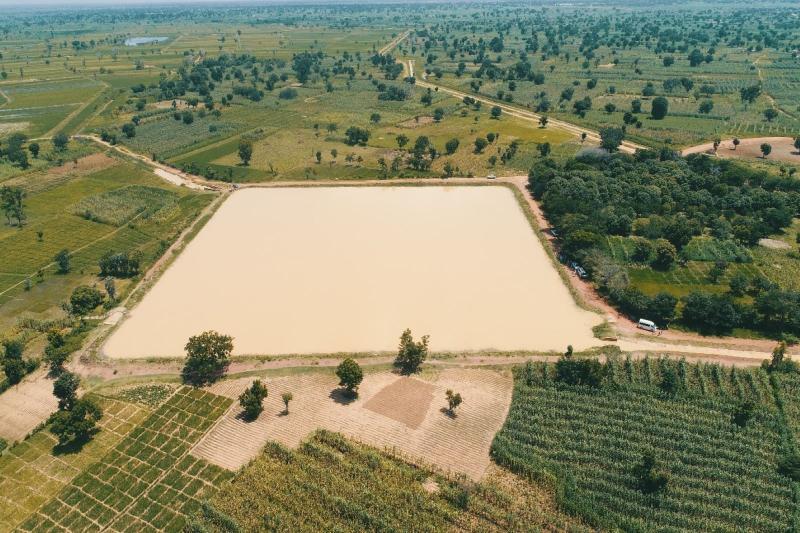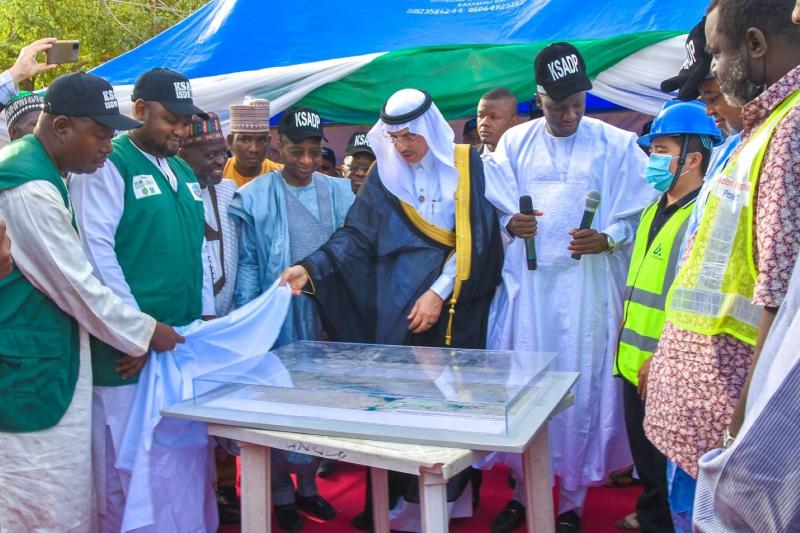Transforming Lives and Livelihoods: How the Watari Dam Revitalization is Enhancing Food Security and Alleviating Poverty in Kano, Nigeria
Kano, Nigeria, boasts the highest number of dams in the country, with about 20 in total, holding an impressive water reserve, up to 3.3 billion cubic meters. Of these dams, Tiga and Challawa Gorge are the largest and are under the Federal government's control. Kano State utilizes these dams to generate hydroelectric power and for other purposes. Smaller dams in the area are used for irrigation, livestock and fisheries development, and flood control, among other purposes. Some dams, like Watari, even have the potential for small-scale agro-allied enterprises.
The Watari dam and irrigation infrastructure is of particular interest to the Islamic Development Bank (IsDB) due to its enormous potential for enhancing food security and creating more job opportunities. The Kano State Agro-Pastoral Development Project (KSADP) spearheaded renovations to the dam, which had not undergone any major repairs for more than two decades, as part of its mandate to ensure food security and poverty alleviation.

The repairs included desilting the reservoir, repairing embankments and canals, and fixing gully erosion. Thanks to funding from IsDB through the Lives and Livelihood Funds, the project was completed successfully.
The Watari dam has a total storage capacity of 105.55Mm2 and can irrigate over 2,600 hectares of land. The irrigation scheme is used for both wet and dry season farming of major high-value crops such as rice, wheat, onions, maize, tomatoes, lettuce, cabbage, pepper, and garlic.
Today, the repairs have been completed, and farmers, women, and all the private sector, and community leaders agree that the repairs have increased their access to water and tremendously enhanced their capacities to produce and sell more food products. Not only has their capacity to produce more increased, but their livelihoods have also witnessed a transformation.
Farmers' association chairman Malam Ibrahim Sani describes IsDB's intervention as "a new lease of life for the farming communities in the area." The impact has been felt far and wide, with more women processing rice, increasing their financial contributions to household expenses, and even buying radios and fans. Input dealers like Lawan Ibrahim have seen their sales soar, with many opening additional shops. The renovation has also attracted pastoralists to the area, providing the hosts with fresh and fermented milk, as well as organic fertilizer for their farms.

The success of the renovation project has been highly valued by IsDB, which has provided more funds for the development of an additional 1,000 hectares of irrigation land in the area, providing opportunities for over 4,000 low-income farmers. The project's launch was presided over by the bank's president, Dr. Muhammad Al Jasser, during his recent visit to Nigeria. The renovation of Watari dam and irrigation infrastructure by KSADP with support of IsDB has created an abundance of opportunities, lifting communities out of poverty and empowering them to live happier, healthier and more prosperous.